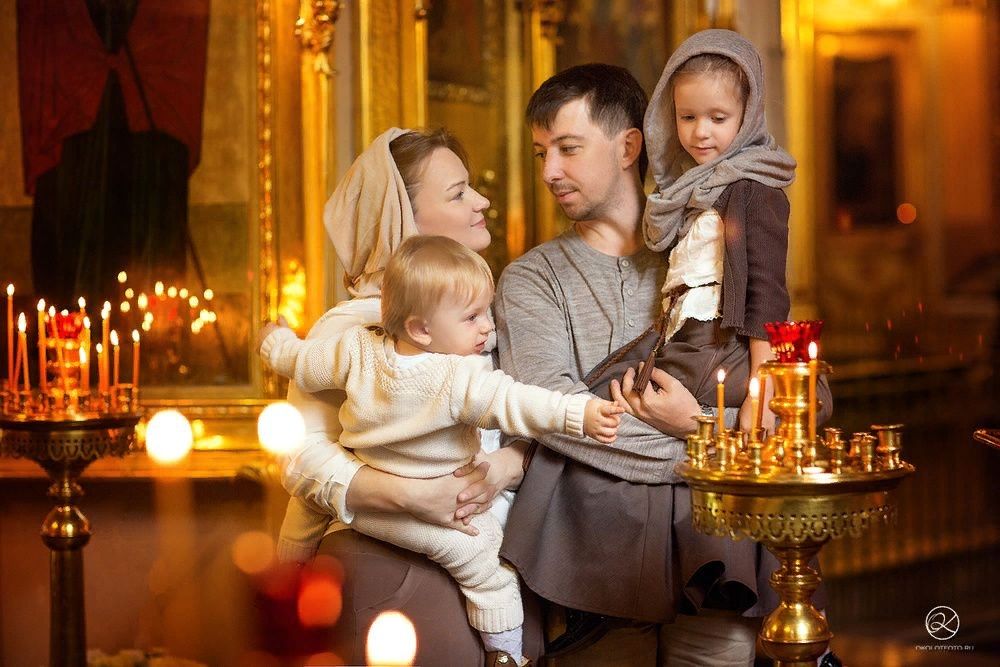 by Met. Ephrem (Kyriakos) –
by Met. Ephrem (Kyriakos) –
Children’s behavior is directly connected to the state of the family. Prayer in the family, in the house and in the church makes a child feel secure. [Read more…]
Prayer
Don’t Forget the Most Important Things!
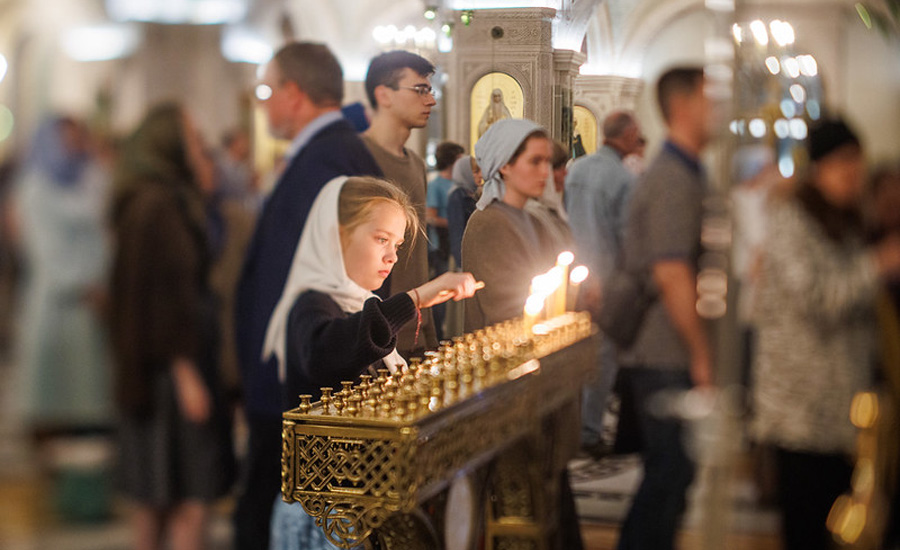 by Ariadna Nefedkina –
by Ariadna Nefedkina –
Work and prayer should not contradict each other, but they can become two sides of the same coin. It is important to remember that there is a place for God even in the most turbulent flow of life. [Read more…]
Prayer is Not a Way to Change the Will of God, But to Find Communion with Him
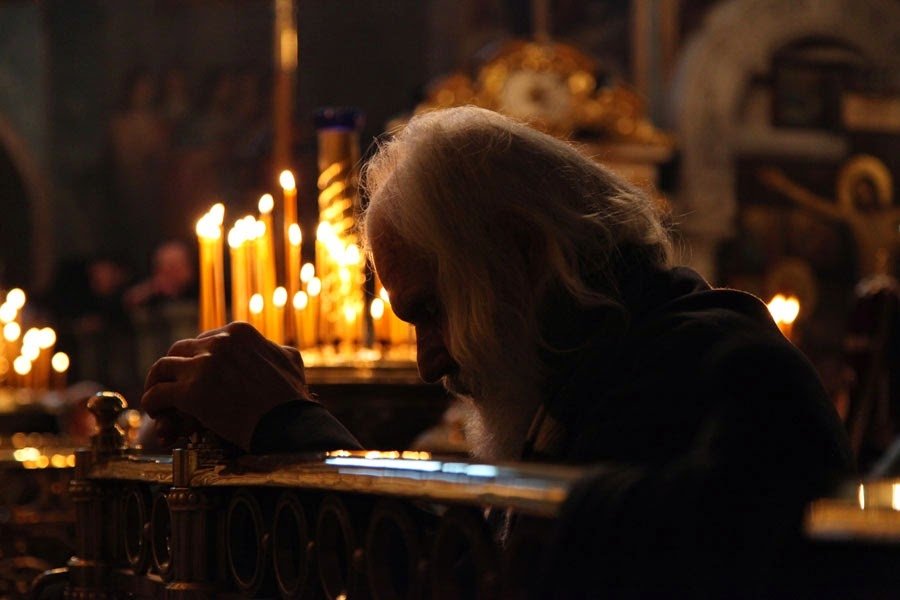 by Fr. Eugene Murzin –
by Fr. Eugene Murzin –
The purpose of a Christian’s life is not to beg God for some earthly things, but to know God and find eternal joy in communion with Him. [Read more…]
Drifting Away From the Christian Faith
 by Fr. Luke A. Veronis –
by Fr. Luke A. Veronis –
Many people in our society have turned away from faith, from faith communities and from the faith in which they were raised. Yet, is it that so many have “turned away” from faith or is it that many have unconsciously “drifted away.’
We are all deeply influenced by everything that is around us in society. Surely there is much skepticism, doubt and uncertainty about faith which we hear and see constantly via the internet or in our daily conversations. This uncertainty may lead us to question beliefs we once held strong. [Read more…]
Orthodox Liturgy Heals and Properly Orders the Human Soul
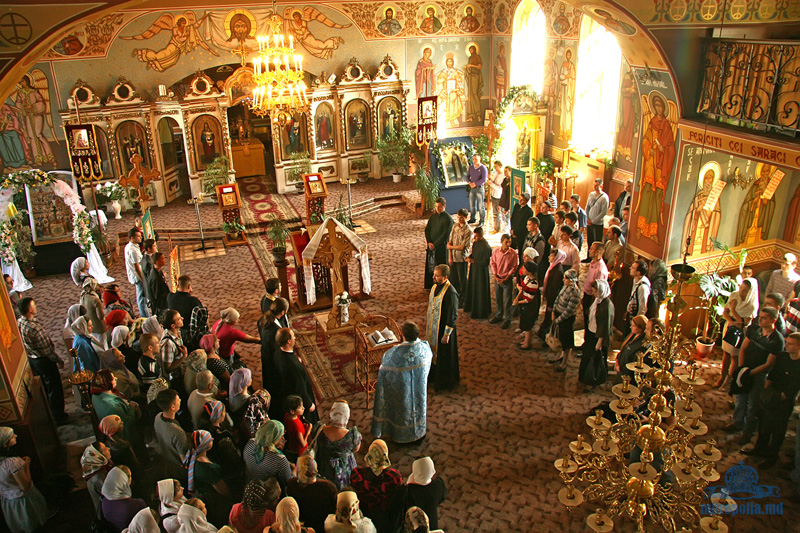 by Fr. Johannes Jacobse –
by Fr. Johannes Jacobse –
People say that the Liturgy is the Kingdom of God entering time and while this definition works I suppose, I have never really understood what it really means. Yes, I understand it abstractly, but abstraction has only a limited usefulness. So I’ve come up with another.
Worship is necessary because it creates the place where the soul can experience a measure of the necessary reordering that fosters healing. The soul has structure, and the healing of the soul, which is also the healing of the person, is one of the concrete, experiential constituents of salvation. Salvation is not metaphorical. It is real which means that it is experiential and affects concrete change and transformation measured as the healing of the person. [Read more…]
Sloth (Idleness) a Very Dangerous Vice, Mother of Many Other Vices
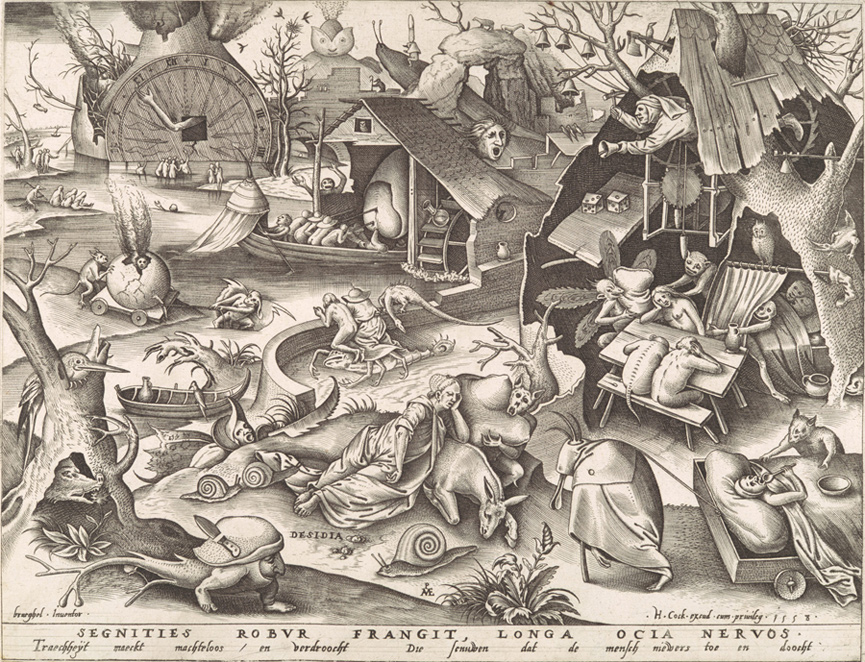 by St. Luke, Archbishop of Crimea –
by St. Luke, Archbishop of Crimea –
“O Lord and Master of my life! The spirit of idleness give me not!” Why does St. Ephraim the Syrian begin his prayer with a request about idleness [sloth], as if there are no worse faults?
In observing idleness [sloth] from the ordinary, everyday point of view we see that idleness is contemptible, and deserves all condemnation.
Idleness is a very dangerous vice, because it is the mother of many other vices. Idle people do not concentrate their thoughts on the profound seriousness of life, the huge responsibility that lies on them not only before people, but also before God Himself. [Read more…]
Lenten Prayer of St. Ephrem the Syrian – An Orthodox Explanation
![]() by St. Luke, Archbishop of Crimea –
by St. Luke, Archbishop of Crimea –
O Lord and Master of my life, take from me the spirit of sloth, despair, lust of power, and idle talk.
But give rather the spirit of chastity, humility, patience, and love to Thy servant.
Yea, O Lord and King, grant me to see my own transgressions, and not to judge my brother, for blessed art Thou, unto ages of ages. Amen.
The prayer of St. Ephrem (St. Ephraim) the Syrian occupies a special place in the services of the holy Church. It is repeated many times during the services of Great Lent.
This prayer penetrates the heart like none other, mysteriously acts upon it, and you feel a special, exceptional divine power in it. Why is that so? Because it was poured from a heart that was perfectly purified and holy, and from a mind that was enlightened by divine grace and had become a participant in the mind of Christ. [Read more…]
Daily Prayers: The Battle with Extraneous Thoughts
 by Metropolitan Hilarion (Alfeyev) –
by Metropolitan Hilarion (Alfeyev) –
Short prayers help in overcoming distractions and extraneous thoughts: “Lord, have mercy,” “God, be merciful to me, a sinner,” and others, which do not require a special focus on the words, but incline one to the birth of feelings and the movement of the heart. With the help of such prayers, one can learn to pray attentively and to focus on prayer.
One of the main obstacles to attentive prayer is the appearance of extraneous thoughts. St. John of Kronstadt, the great ascetic of the end of the nineteenth and beginning of the twentieth centuries, describes in his diaries how, during the celebration of the Divine Liturgy, at the most crucial and sacred moments, before his mind’s eye would appear an apple pie or some other reward that he might be given. And with bitter regret he suggests how such extraneous images and thoughts can destroy a prayerful state. If such happened with the saints, then there is nothing surprising if it happens to us, too. To protect ourselves from extraneous thoughts and images, we have to learn, as did the ancient Fathers of the Church, “to guard our minds.” [Read more…]
The Lord’s Prayer: Everything Man Needs for Life and Salvation
 by Metropolitan Hilarion (Alfeyev) –
by Metropolitan Hilarion (Alfeyev) –
The “Our Father” prayer is of special significance, because Jesus Christ Himself gave it to us. It begins with the words: “Our Father, Who art in the heavens.” This prayer is comprehensive in character: in it is concentrated, as it were, everything that man needs both for earthly life and for the salvation of his soul. The Lord gave it to us so that we would know what we should pray for and what to ask of God.
The first words of this prayer, “Our Father, Who art in the heavens,” reveal to us that God is not some distant or abstract being, not some notional good foundation, but our Father. Today very many people, in response to the question of whether they believe in God, reply in the affirmative; but if you ask them how they imagine God and what they think of Him, they respond something like this: “Well, God is good, it is something luminous, some kind of positive energy.” That is, they treat God like some kind of abstraction, as something impersonal.
When we begin our prayer with the words “Our Father,” then we are immediately appealing to the personal, living God, to God as Father – to the Father about Whom Christ spoke in the parable of the prodigal son. [Read more…]
Don’t Despair, Cling to Our Lord and Savior Jesus Christ
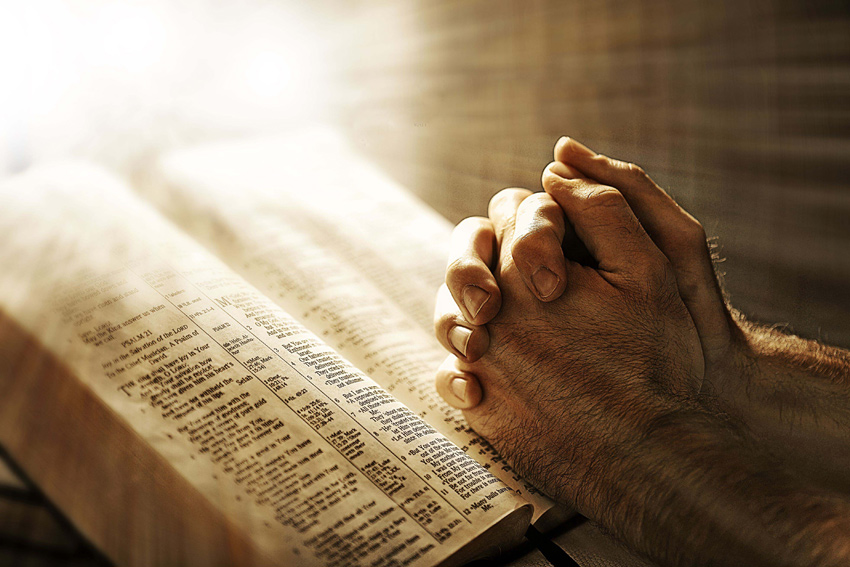 by St. John of Kronstadt –
by St. John of Kronstadt –
When the darkness of the accursed one [the devil] covers you — doubt, despondency, despair, disturbance — then only call with your whole heart upon the sweetest name of Jesus Christ, and in Him you shall find all — light, strengthening, trust, comfort, and peace; in Him you shall find the greatest mercy, goodness and bountifulness; all these mercies you will find contained in His name alone, as though in a rich treasury.
Never despair in God’s mercy by whatever sins you may have been bound by the temptation of the Devil, but pray with your whole heart, with the hope of forgiveness; knock at the door of God’s mercy and it shall be opened unto you. I, a simple priest, am an example for you: however I may sometimes sin by the action of the Devil, for instance, by enmity towards a brother, whatever the cause may be, even though it may be a right cause, and I myself become thoroughly disturbed and set my brother against me, and unworthily celebrate the Holy Sacrament, not from wilful neglect, but by being myself unprepared, and by the action of the Devil; yet, after repentance, the Lord forgives all, and everything, especially after the worthy communion of the Holy Sacrament: [Read more…]
